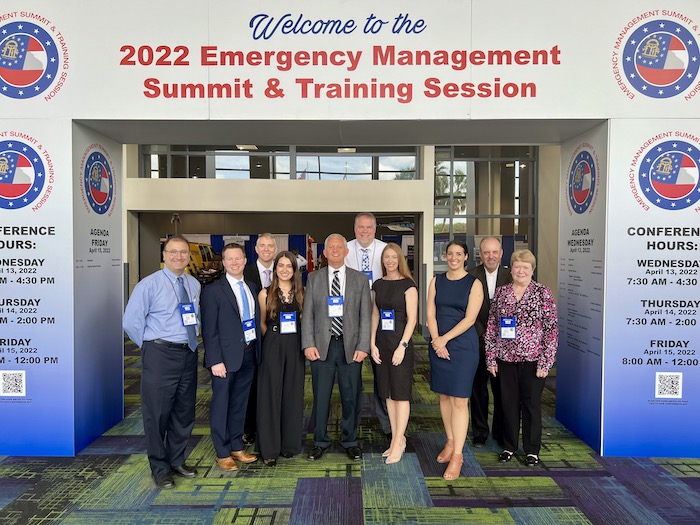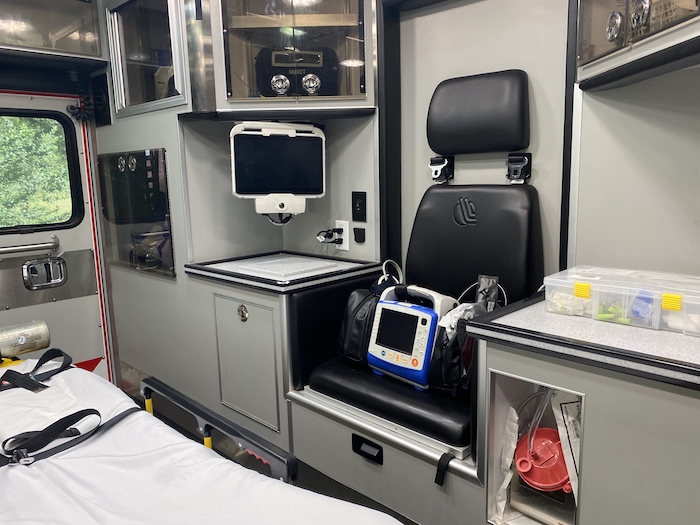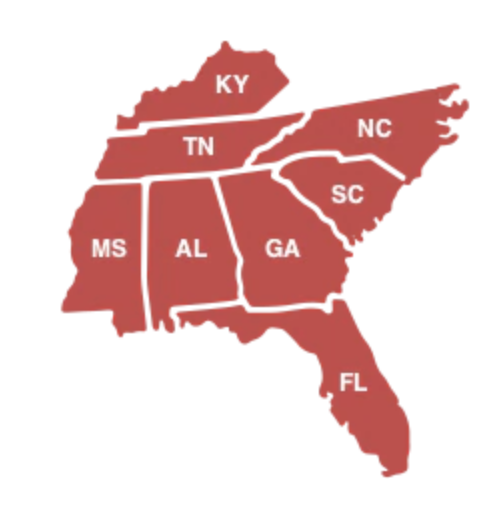Emergency Management Association of Georgia
SRDRS was introduced widely to Region 4 states during the 2022 Emergency Management Association of Georgia (EMAG) Training and Preparedness Summit. The meeting is hosted in Georgia, however the target audience includes partners from all Region 4 states, including the healthcare coalition leads. The Summit further served to introduce the SRDRS broadly to partners in the southeastern states and numerous opportunities for interstate collaboration among emergency managers and healthcare coalition leaders were identified.

Poison Control Center Collaborations
Comprised of Poison Control Center Medical Directors, Executive Directors/Managers, and Toxicology Fellows, R4PC3 will provide the infrastructure to synergize efforts across Poison Control Centers and the subject matter experts that they represent in Region 4. All 10 of the Region 4 poison control centers have partnered with SRDRS. R4PC3 is governed by a steering committee composed of representatives from each poison center leadership team.
Dr. Ziad Kazzi coordinates the activities of the steering committee. R4PC3 intends to enhance the capability of Region 4 in providing technical and clinical consultations to medical providers, public health, emergency management and the public, during and after chemical disasters. R4PC3 and future radiation collaborative will review published EEI templates to develop EEIs for specific situations such as radiation.
R4PC3 has identified the first guidelines will be the assessment and management of (1) radiation exposures and (2) nerve agents. Together, all of the Poison Control Centers located in Region 4 determined these two clinical guidelines would benefit their centers the most.

Tele-EMS Collaborations
Through Emory ER-TEMS, the SRDRS prehospital tele-paramedicine component is established by partnering primarily with Grady EMS which has 911 operations in 18 counties in the state of Georgia. Interest meetings have taken place with eight other EMS agencies spanning six new EMS regions in Georgia. SRDRS continues to collaborate with an existing tele-EMS framework: the Emory Rural Tele-EMS Network (ER-TEMS). Region I and K have been deployed and Emergency Physicians have started seeing patients with critical, time-sensitive conditions en route to rural hospitals. It is feasible that these operational regions can be activated, in their current state, to support local disasters. More planning is required, however, to establish workflows for seamless and rapid SRDRS activation. Within the ER-TEMS program, we expect to be deployed and operational in Region L by the end of June 2022.
Through further planning with our Grady EMS partners, we expect to deploy ambulances in Regions D and E. We continue to work with ambulance agencies to inventory existing cellular connectivity so we may plan for any needed upgrades to synchronize with our tele-EMS hardware / software setup. With these new partnerships, we will begin planning equipment installation and connectivity testing. Our experience within ER-TEMS has allowed us the opportunity to install tele-EMS equipment in various ambulance styles throughout rural Georgia. We anticipate successful and swift replication of this process. Similarly, the education and training program that has been used in 6 rural counties (with ER-TEMS) has proven to be and effective form of just-in-time training. Training and education will be scheduled after equipment installation has been initiated.

Regional Outreach
As part of HHS Region 4 cross-state engagement, SRDRS is inviting Health Care Coalitions and health care systems to enhance dialogue and inform best practice for triage, clinical care, and health system operations through engagement of both clinical and health system operational experts to better manage mass casualties that could result from a CBRNE incident
